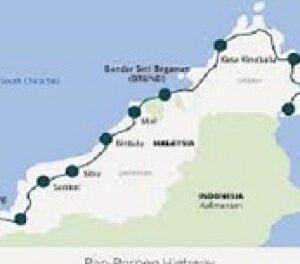Date: 18-Sep-2015
 It was reported that Malaysia is set to take a leap forward in the construction industry, with a new blueprint in place, aimed at keeping this sector vibrant and sustainable.
It was reported that Malaysia is set to take a leap forward in the construction industry, with a new blueprint in place, aimed at keeping this sector vibrant and sustainable.
Known as the Construction Industry Transformation Programme (CITP), the five-year plan for the construction industry goes hand-in-hand with the 11th Malaysia Plan.
CITP, which will run from 2016 to 2020, was put together with help from local and international industry players, government agencies, professional bodies and research institutes.
Spearheaded by the Works Ministry and the Construction Industry Development Board (CIDB), this plan consists of 18 initiatives from four strategic thrusts.
The four are: Quality, Safety and Professionalism, Environment Sustainability, Productivity and Internationalism.
“Each of this four thrusts seek to transform and improve the public and international image of the industry.
“Like the first thrust for example, enhancing quality, safety and professionalism are pre-requisites towards a responsible and developed industry,” said Prime Minister Datuk Seri Najib Tun Razak.
He said this before officiating the launch of the Ecobuild Southeast Asia 2015 and the International Construction Week (ICW) 2015 at the Putra World Trade Centre (PWTC) recently.
Hosted by CIDB, Ecobuild Southeast Asia 2015 exhibition was held at PWTC from Sept 9 to 11 to showcase products and new technologies from key industry players worldwide.
With the theme “Advocating Eco-Efficiency, Advancing Businesses”, the event saw more than 100 companies from various countries including China, Taiwan, Australia and the Middle-East.
Najib further reiterated that quality was of great importance in any construction project and they would push for the adoption of Q-LASSIC, which is a quality assessment system in construction.
This system can help measure the quality of workmanship and help contractors estimate cost accurately including expenses needed to ensure safety and health requirements are met.
“It is in plans to make Q-LASSIC a mandatory element in all government projects by 2018 to help further enhance and improve the quality of projects delivered,” he said.
Apart from this, he stressed that productivity in Malaysia was on the low end and changes needed to be made.
He explained that Malaysia’s construction industry had the lowest labour productivity in comparison to countries such as Australia, China and the US.
“This is something we need to change and the Government will focus on the key drivers for productivity like workforce, technology and process,” he said.
Based on statistics done in March 2015 by the Human Resources Ministry, foreign labour in construction makes up 19% of the total number of foreign workers in the country.
This is second to the manufacturing sector, which makes up 37%.
Joining him at the event was Works Minister Datuk Seri Fadillah Yusof, who said the event was an important annual event for the industry.
“Apart from the showcases and seminars, the event promotes the industry to local job seekers through the CIDB Career Fair,” he said.
The career fair aimed to expose the general public to job opportunities in the industry.
With this, the workforce requirements would no longer be low-skilled labour but instead be highly skilled and competent in future.


